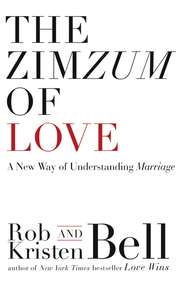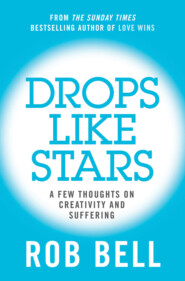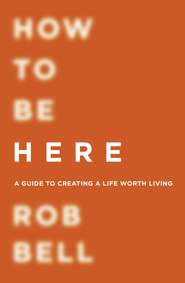По всем вопросам обращайтесь на: info@litportal.ru
(©) 2003-2024.
✖
Love Wins and The Love Wins Companion
Автор
Год написания книги
2018
Настройки чтения
Размер шрифта
Высота строк
Поля
Jesus then tells him, “Go, sell your possessions, and give to the poor, and you will have treasure in heaven,” which causes the man to walk away sad, “because he had great wealth.”
Did we miss something?
The big words, the important words—“eternal life,” “treasure,” “heaven”—were all there in the conversation, but they weren’t used in the ways that many Christians use them.
Shouldn’t Jesus have given a clear answer to the man’s obvious desire to know how to go to heaven when he dies? Is that why he walks away—because Jesus blew a perfectly good “evangelistic” opportunity? How does such a simple question—one Jesus could have answered so clearly from a Christian perspective—turn into such a convoluted dialogue involving commandments and treasures and wealth and ending with the man walking away?
The answer,
it turns out,
is in the question.
When the man asks about getting “eternal life,” he isn’t asking about how to go to heaven when he dies. This wasn’t a concern for the man or Jesus. This is why Jesus doesn’t tell people how to “go to heaven.” It wasn’t what Jesus came to do.
Heaven, for Jesus, was deeply connected with what he called “this age” and “the age to come.”
In Matthew 13 Jesus speaks of a harvest at the “end of the age,” and in Luke 20 he teaches about “the people of this age” and some who are “considered worthy of taking part in the age to come.” Sometimes he describes the age to come simply as “entering life,” as in Mark 9—“it’s better for you to enter life maimed”—and other times he teaches that by standing firm “you will win life [in the age to come],” as in Luke 21. And then, just before he leaves his disciples in Matthew 28, Jesus reassures them that he is with them “always, to the very end of the age.”
Jesus’s disciples ask him in Matthew 24, “What will be the sign of your coming and of the end of the age?” because this is how they had been taught to think about things—
this age,
and then the age to come.
We might call them “eras” or “periods of time”:
this age—the one we’re living in—and the age to come.
Another way of saying “life in the age to come” in Jesus’s day was to say “eternal life.” In Hebrew the phrase is olam habah.
What must I do to inherit olam habah?
This age,
and the one to come,
the one after this one.
When the wealthy man walks away from Jesus, Jesus turns to his disciples and says to them, “No one who has left home or wife or brothers or sisters or parents or children, for the sake of the kingdom of God will fail to receive many times as much in this age, and in the age to come eternal life” (Luke 18).
Now, the English word “age” here is the word aion in New Testament Greek. Aion has multiple meanings—one we’ll look at here, and another we’ll explore later. One meaning of aion refers to a period of time, as in “The spirit of the age” or “They were gone for ages.” When we use the word “age” like this, we are referring less to a precise measurement of time, like an hour or a day or a year, and more to a period or era of time. This is crucial to our understanding of the word aion, because it doesn’t mean “forever” as we think of forever. When we say “forever,” what we are generally referring to is something that will go on, year after 365-day year, never ceasing in the endless unfolding of segmented, measurable units of time, like a clock that never stops ticking. That’s not this word. The first meaning of this word aion refers to a period of time with a beginning and an end.
So according to Jesus there is this age, this aion—
the one they, and we, are living in—
and then a coming age,
also called “the world to come”
or simply “eternal life.”
Seeing the present and future in terms of two ages was not a concept or teaching that originated with Jesus. He came from a long line of prophets who had been talking about life in the age to come for hundreds of years before him. They believed that history was headed somewhere—not just their history as a tribe and nation, but the history of the entire universe—because they believed that God had not abandoned the world and that a new day, a new age, a new era was coming.
The prophet Isaiah said that in that new day
“the nations will stream to” Jerusalem,
and God will
“settle disputes for many peoples”;
people will “beat their swords into plowshares
and their spears into pruning hooks” (chap. 2).
As we would say,
peace on earth.
Isaiah said that everybody will walk
“in the light of the LORD”
and
“they will neither harm nor destroy”
in that day.
The earth, Isaiah said, will be
“filled with the knowledge of the LORD
as the waters cover the sea” (chap. 11).
He described
“a feast of rich food for all peoples”
because God will
“destroy the shroud that enfolds all peoples,
the sheet that covers all nations,
he will swallow up death forever.”











